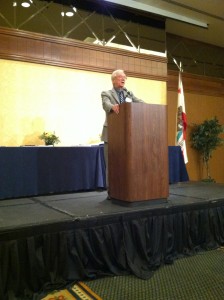BLOOMBERG
Nov. 21, 2012
San Bernardino Agrees to Mediation With Firefighters
By Steven Church
San Bernardino, the bankrupt California city, and its firefighters union agreed to seek court-supervised mediation of their labor contract disputes, the city said in court papers.
The two sides will ask U.S. Bankruptcy Judge Scott Clarkson to oversee talks aimed at resolving their disagreements, which were not specified in the court filing today in Riverside, California.
Two weeks after the city filed for bankruptcy protection on Aug. 1, the union threatened to try to have the case dismissed.
San Bernardino was the third California city to file bankruptcy in less than three months. The city of about 209,000 people lies about 60 miles (97 kilometers) east of Los Angeles. A fiscal emergency, brought on by a $46 million budget shortfall, forced it to stop paying some creditors and seek court protection, the city said.
The case is In re San Bernardino, 12-28006, U.S. Bankruptcy Court, Central District of California (Riverside).
To contact the reporter on this story: Steven Church in Wilmington, Delaware at schurch3@bloomberg.net
To contact the editor responsible for this story: John Pickering at jpickering@bloomberg.net





